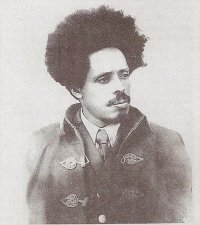
Back አበበ አረጋይ Amharic Abebe Aragai German Abebe Aragai Finnish Abebe Aregai French אבבה ארגאי HE Abebe Aregai Italian Abebe Aregai NB Abbebe Aregaj Polish Арегаи Абебе Russian
Abebe Aregai | |
|---|---|
| አበበ አረጋይ | |
 | |
| Prime Minister of Ethiopia | |
| In office 27 November 1957 – 17 December 1960 | |
| Monarch | Haile Selassie I |
| Preceded by | Makonnen Endelkachew |
| Succeeded by | Imru Haile Selassie (acting) |
| Minister of Defence | |
| In office 1955 – 17 December 1960 | |
| Prime Minister | Makonnen Endelkachew Abebe Aregai |
| Preceded by | Abiye Abebe (Minister of War) |
| Succeeded by | Merid Mengesha |
| Minister of the Interior | |
| In office 1949–1955 | |
| Prime Minister | Makonnen Endelkachew |
| Preceded by | Position established |
| Succeeded by | Mesfin Sileshi |
| Minister of War | |
| In office 1947–1949 | |
| Prime Minister | Makonnen Endelkachew |
| Preceded by | Birru Walda Gabriel |
| Succeeded by | Abiye Abebe |
| Governor of Tigray | |
| In office 1943–1947 | |
| Preceded by | Haile Selassie Gugsa Seyoum Mengesha (Tigray) |
| Succeeded by | Seyoum Mengesha |
| Governor of Sidamo | |
| In office 1941–1942 | |
| Preceded by | Pietro Gazzera (Fascist Governor) |
| Succeeded by | Adefresew Yinadu |
| Lord Mayor of Addis Ababa | |
| In office 1941–1941 | |
| Preceded by | Agenor Frangipani (Fascist Governor) |
| Succeeded by | Takele Woldehawariat |
| Personal details | |
| Born | 18 August 1903 Woira Amba-Jirru, Shewa, Ethiopian Empire |
| Died | 17 December 1960 (aged 57) Guenete Leul Palace, Addis Ababa, Ethiopian Empire |
| Political party | Independent |
Ras Abebe Aregai (Amharic: አበበ አረጋይ; 18 August 1903[1] – 17 December 1960) was an Ethiopian military commander who served as Prime Minister of Ethiopia from 27 November 1957 until his death. He was a victim of the unsuccessful 1960 Ethiopian coup.
During the Italian occupation, he led a group of resistance fighters. They were collectively known as the Arbegnoch (lit. 'Patriots'), and operated in Menz. The British IWM labeled Abebe “one of the bravest men in the modern world.” [2]
- ^ David Hamilton Shinn, "Abebe Aregai, Ras," Historical Dictionary of Ethiopia. The Scarecrow Press, inc.: Lanham, Maryland; Toronto; Oxford, 2004, p. 3. However Thomas L. Kane writes that Abebe "was born in xoru district, Shoa, in 1890/1897-8", that is 1890 E.C./AD 1897-8. ("The Nasi-Ras Abbäbä Arägay Truce according to Two Amharic Sources", Bulletin of the School of Oriental and African Studies, 39 (1976), p. 49
- ^ "Imperial War Museum". IWM. Archived from the original on 2021-12-22.
© MMXXIII Rich X Search. We shall prevail. All rights reserved. Rich X Search